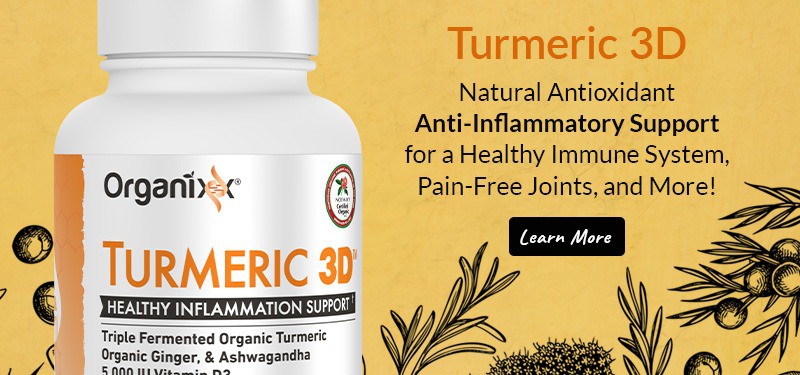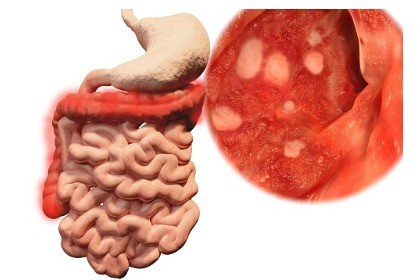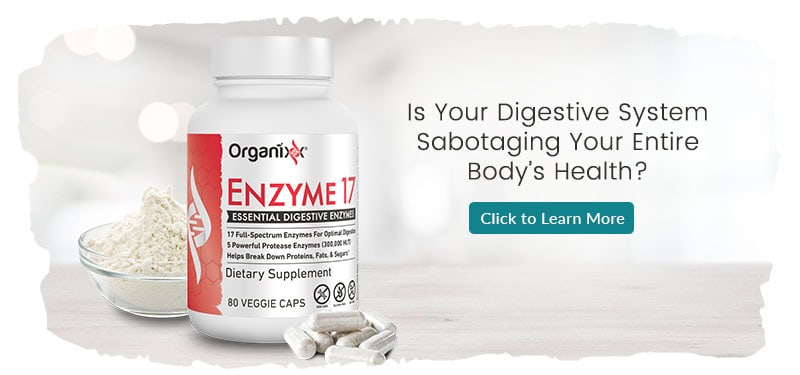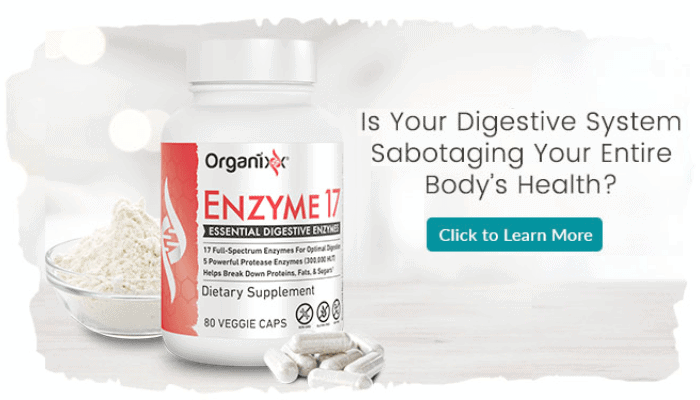Video Transcript:
Sharon B.’s question today is about constipation and bloating. She says, “Please help me, perhaps the medication I’m taking for Parkinson’s may be the cause.” She asks, “What can I do to help with digestive issues?”
So, I’m excited to share with you several options to help support your overall gut health. And it involves really kind of four facets to promoting balance from your oral health, all the way to your large intestine. And everything in between, digestively.
Support Gut Health with Probiotics
We want to support your mucosal lining, we want to add in probiotics. And one of my favorites to recommend is ProBiotixx+ here that we have that taps into an amazing single gut strain of bacteria that has been highly, highly beneficial at supporting overall optimal gut health.
Increase Fiber Intake
I also recommend making sure we’re increasing your fiber intake, especially for folks that are constipated. Sometimes they might be dehydrated and then they’re not getting enough fiber. So, getting enough water and getting enough kind of soluble insoluble fiber, the blends of that, aiming for 35 to 40 grams of fiber a day, plus really good high-quality mineral-dense water, is a good way to get things moving. That can eradicate constipation.
Supplement with Magnesium
Another amazing thing that eradicates constipation is magnesium. So, adding the Magnesium 7 to the blend is going to be powerful. Now this is a very beneficial, multi- full-spectrum magnesium, and there will be some magnesium forms that motivate the bowels more than others. But overall, magnesium will clear out excess fluid floating through and roaming through your body via inflammation. That will actually flush more excess fluid into the digestive process, hydrating the bowels and moving the bowel contents more readily.
Detox the Liver
The other thing that we may want to zero in is supporting your liver. And that becomes a really key kind of intersection between the upper GI and the lower GI. And so, if we are dealing with maybe values on your labs of high cholesterol, high triglycerides, maybe C reactive proteins elevated, a liver detox, or a liver support would be helpful.
Add Enzymes to Help Combat Malabsorption
And malabsorption can be a factor. So not digesting food properly or absorbing, breaking down, digesting, and assimilating, and absorbing the nutrients and the food that you’re consuming. That’s where adding an Enzyme 17, where we have 17 assorted compounds and enzymes that help you break down and to assimilate your food so that we have better absorption and movement through the digestive process.
Identify the Root Cause Through Testing
And I also recommend this month, I am hosting a private workshop where I’m digging further into digestive health. It’s called A Healthier Gut, Happier You. This is a private workshop and I will post a link where you can gain access to that. And I recommend you take that because I’m going to be digging into the assorted elements and components of the entire digestive process, and really how to zero in on what might be causing the constipation, what might be causing the bloating, certain tests that you might want to look at taking.
But overall, we need to support your oral microbiome starting in the oral cavity. We need to support your large intestinal microbiome, and we need to add those good things like healthy fiber and more water and helping detox the liver are going to be critical.
So, I hope that is helpful for you, Sharon. Thanks so much for commenting and sending in your question. And I look forward to helping you in the future.
Magnesium deficiency is linked to stress, diabetes, heart disease, osteoporosis, chronic fatigue syndrome, depression, anxiety, trouble sleeping, sore muscles, migraines, and many more debilitating health conditions.
If your body needs magnesium, you want the most beneficial kind your body can actually absorb. Organixx Magnesium 7 gives you seven (7) of the very best, most bioavailable types of elemental magnesium available.

Video Transcript:
Today, I want to share with you why I love Turmeric 3D so much for not just inflammation reduction and balancing our stress hormone, but also just overall supporting our brain function, our digestive function, and our cardiovascular function.
Maximizes Benefit & Bioavailability with Fermented Botanicals
One of the awesome things that we have harnessed here at Organixx is we have a unique fermentation process of the ingredients in a multitude of our supplements. And Turmeric 3D is a part of that fermentation process, which allows you as a consumer to get the max benefits of the turmeric and the ashwagandha, and the other botanical powerhouses in Turmeric 3D that will help lower inflammation, reduce excess fluid weight and retention, and can also help restore and rejuvenate your immune state, balance your stress levels, calm hormonal imbalances.
Lowers Inflammation
And it even helps with your brain-based inflammation, which we’re seeing now with a lot of post-COVID infections. You don’t even have to qualify as a long COVID or a long hauler, but there are a lot of individuals that are still having residual inflammation and even patients that have auto-immunity or folks that have lymphedema or lipedema, or just overall notice they’re carrying more cellulite or excess weight. Those are all signs of an inflammatory state.
So, using Turmeric 3D allows you to harness the potency of turmeric, which has been heavily researched in its amazing power to lower inflammation markers in your body. It also has ashwagandha, which is a wonderful stress-balancing herbal, and in a fermented form, it actually is going to be more bioavailable. So, you need less and you get more power and more potency.
Addresses Vitamin D3 Deficiency
So, I’m excited to share that with you because one of the things that we love, not only are you getting the turmeric and the botanicals, but we also add D3 in a form, it’s a 5,000 IU form, which vitamin D3, I find almost all of my patients when I do a blood spot test, we do blood spot testing in my clinic, they are all in low or suboptimal levels or ranges of vitamin D3. And vitamin D3 has a lot to do with your mental outlook. It is a hormone precursor. It’s a building block. It’s an ingredient for your body, balancing your stress levels, your reproductive hormone levels, and overall, every cell has receptivity to vitamin D.
Optimizes Overall Wellness
So, I’m very, very excited to recommend the Turmeric 3D. This is a powerful supplement here that has anti-inflammatory effects. It has stress-lowering, hormone-balancing, and overall will help support your body and optimize your wellness.
So I hope you check this out and it’s such a great resource for anybody who might be looking for a way to support their overall wellness and just know inflammation is the root of every illness and disease. Taming and calming inflammation levels in your body will increase and optimize your overall wellness.
Turmeric 3D from Organixx provides you one of the most “bioavailable” forms of turmeric due to its unique fermentation process. This means your body experiences the maximum benefits of the purest, most potent turmeric available!

Though it’s not often talked about in popular media, there is a link between digestive enzymes and weight loss. In fact, the connection between digestive enzymes and body composition is significant, representing one of the most overlooked factors when trying to forge a healthy weight management plan – both for people who are overweight or obese, as well as underweight.
If you struggle with persistent weight issues that just won’t relent, you might have a lingering enzyme deficiency that’s inhibiting your body’s ability to digest food properly and dispose of waste – leading to fat accumulation, muscle deterioration, or worse.
Too Few Digestive Enzymes = Incomplete Digestion
According to the United States Centers for Disease Control and Prevention (CDC), more than 22 million Americans suffer from gastrointestinal problems that stem from incomplete digestion [1]. And as it turns out, incomplete digestion is often a factor of not having enough digestive enzymes.

If you suffer from gas, bloating, or one of the other usual suspects of poor digestive health, chances are you’re not getting enough enzymes from your food. And since enzymes are where digestion starts, this is the first thing you want to address if you’re having digestive system troubles. If left unchecked, a lack of enzymes can slow down your metabolism over time and throw your body into biological disarray.
How Different Body Types Are Impacted by Enzyme Deficiency
For naturally thinner people (e.g., the ectomorph body type), they might start to notice that no matter how much they try to eat, they can’t seem to gain any weight. For more rounded body types (e.g., endomorphs), they might be unable to lose weight no matter how many different diets they attempt.
The circumstances will be different for each individual. Still, the principle remains the same: if your body can’t break down food into molecular-sized components that your body can use, then your weight is sure to suffer in one negative direction or the other. Not only that, even worse health problems are likely to follow if the issue isn’t addressed.
Prolonged Incomplete Digestion Is a Recipe for Metabolic Disaster
It only makes sense that if your body isn’t getting the nutrition it needs due to poor digestion, then it’s not going to function on all cylinders. And your metabolism is often the first thing to suffer, driving a wedge between your efforts to either bulk up or slim down and see results [2].

On the one hand, malnutrition resulting from a digestion-inhibiting enzyme deficiency probably means that your body isn’t assimilating enough calories, which for some people could cause unwanted weight loss.
At the same time, metabolism can slow down to the point that food remains in an undigested state and starts to compact itself in the gut, cascading into unwanted weight gain.
When food particles linger in the colon for too long undigested, they tend to attract increasing levels of bacteria (both good and bad) that try to get it moving. This can lead to a condition known as small intestinal bacterial overgrowth, or SIBO, which is similarly associated with weight gain.
This mass influx of bacteria tends to create excessive levels of methane gas that inhibit the small intestine from effectively doing its job. Intestinal villi, or the small, finger-like projections that line the surface of the intestinal wall, start to binge like they’re at an all-you-can-eat buffet, and all these calories begin to pile on as unwanted fat.
Leptin Tells Your Brain When It’s Time to Stop Eating
In scenarios like this where digestive enzymes aren’t readily available to act as digestive gatekeepers, your body’s probiotic stores will attempt to fill the void. But this can cause your insulin levels to spike, followed by a degradation in the functionality of leptin, a hormone produced by your body’s fat cells that essentially tells your brain when it’s time to stop eating [3].
Leptin oversees how your body converts food into either energy, muscle, or fat, in just the right amounts. However, should your body develop a resistance to leptin due to a lack of digestive enzymes, not only will your food not digest properly but what it digests into will also go awry.

While insulin plays a vital role in managing blood sugar levels as part of this process, the more insulin you have circulating in your bloodstream, the less leptin will be able to do its job. This can lead to the formation of hyperinsulinemia, which can spike blood sugar levels so high that your body stops converting food to energy, and instead stores it as fat.
Dr. James Johnson, PhD, is an associate professor of medicine at the University of British Columbia in Vancouver, Canada. According to Dr. Johnson, too much insulin, and thus not enough functional leptin, can reprogram the body “to really hold onto its nutrients and not burn any of them” – which is bad news from a weight management perspective [4].
Sugar, it turns out, is one of the primary drivers of the obesity epidemic, and this is part of the reason why. Rather than converting the carbohydrates you consume into energy, your body packs them on as fat, which further drives insulin and leptin resistance, creating an endless and vicious cycle of unwanted weight gain.
All of this can be traced right back to poor digestion, which is triggered by an enzyme deficiency in many cases. In these instances, fixing the problem can be as simple as intaking more digestive enzymes, which have the potential to stoke the fat-burning fire and get the body back on track.
Too Thin? Digestive Enzymes Can Help Here, Too
And don’t feel left out if you’re too thin and trying to gain weight, as the process is much the same – though with obviously different results.

By supporting optimized nutrient absorption and healthy metabolism, digestive enzymes have a positive effect on both insulin levels and leptin functionality. This can boost energy levels and improve the ability of your body to break down proteins into amino acids which aids in adding muscle mass [5].
The Link Between Chronic Inflammation and Weight Gain
Another major problem with undigested food particles lingering in your gut is that they eventually start to inflame your body. Since chronic inflammation is also linked to weight gain, this is obviously something you want to avoid to achieve your healthy weight management goals.
While acute inflammation is a beneficial mechanism through which your body addresses underlying health issues, too much of it for too long can throw your immune system completely off-kilter. This is another key marker in obesity, in that systemic, low-grade inflammation – “metainflammation” – is directly associated with unwanted weight gain [6].
Irritable bowel syndrome, or IBS, is a common inflammatory GI condition that can arise from this, for which many people take probiotics as a natural solution. But digestive enzymes are where it all starts, as probiotics are designed to engage the second phase of the digestive process after enzymes have already worked their magic.
GI-Related Conditions That Interfere With Weight
Other GI-related conditions that can interfere with healthy weight loss and maintenance include:
Gastroparesis, which slows or stops the movement of food from the stomach to the small intestine. While gastroparesis can make you feel like you’re gaining weight due to bloat and feelings of over-fullness, in the long run, this disease can lead to severe weight loss – and not the good kind.

Ulcerative colitis, which leaves the digestive tract in a perpetually inflamed state. Initially, this disease can seem like it’s causing weight loss. But its treatments, which often include taking steroids like prednisone, can cause your body to gain weight in all the wrong places, including in your abdomen, neck, and face.
Keep in mind that chronic inflammation is a leading cause of chronic illness in general. And the highly processed standard American diet, which is severely lacking in digestive enzymes, only makes things worse, in large part because it’s loaded with processed sugars and other hidden food allergens [7].
Do Enzymes Burn Fat Directly?
Now that we’ve identified some of the ways in which digestive enzymes and weight loss (or intentional weight gain) go hand-in-hand, including by supporting healthy inflammation levels [8], part of the solution can be as simple as taking more enzymes – especially those that directly contribute to the burning of fat.
In addition to supporting proper nourishment and optimized body composition, fat-burning enzymes like lipase, which breaks down fats, possess the unique ability to turn on and off the various fat-burning “switches” inside your body.
Lipase specifically has an inversely proportional relationship with insulin. This means the higher your levels of lipase, the lower your levels of insulin, too much of which can cause weight gain. This suggests that lipase may help to ward off insulin resistance and the metabolic havoc it can cause if not properly mitigated.
Increasing your lipase stores, in conjunction with other fat-burning digestive enzymes, as well as both probiotics and prebiotics, can thus help to support balanced insulin levels, which in turn may help to improve lipid profiles and glucose metabolism [9].
Lipase and digestive enzymes in general function as regulatory mechanisms in optimizing your body’s ability to not only extract and absorb nutrients from food, but also deliver these nutrients where you actually want them to go – rather than around your midsection.
Conversely, if you have trouble keeping on weight, digestive enzymes like lipase can help your brain to get the message that it’s time to start utilizing more of what you eat in the production of muscle. By fine-tuning your metabolism in this way, digestive enzyme supplements really do have the potential to help you achieve your weight management goals.
Organixx Enzyme 17 contains a whopping FIVE kinds of powerful protease enzymes in combination with one of the most advanced enzyme blends on the planet. It’s scientifically designed to help your body break down and process nutrients for better absorption, digestion, and overall health.

One might argue that one of the most amazing feats of human engineering is the automobile. Consider everything that goes into making one… from the advanced assembly lines to the precise robotics, to the human ingenuity behind it all. Those human beings were able to come up with a way to harness energy from the earth and basically infuse it into a boxy metallic structure on wheels that can take us wherever we desire is nothing short of awe-inspiring when you really stop and think about it.
As incredible as they are, though, cars would be entirely worthless if not for the human brainpower behind their build and daily operation. What makes a car a useful machine, in other words, are the regular refuelings, oil changes, tire rotations, and maintenance that keep it running smoothly – all  things that are entirely impossible without human involvement, willingness, and know-how into what it takes to keep a car going.
things that are entirely impossible without human involvement, willingness, and know-how into what it takes to keep a car going.
Where we’re going with all of this is that the human body functions similarly to a car in that it’s a finely-tuned creation that requires its own special inputs for proper function and maintenance.
Our bodies are obviously much more impressive “machines,” in that they’re uniquely equipped to perform self-maintenance and self-regenerate without the need for a driver. At the same time, they still require outside help – primarily in the form of proper nutrition − in order to thrive.
Why Your Body Needs Enzymes
But what is proper nutrition, and more importantly, how is your body able to benefit from it? Every time you eat, your body produces saliva, bile, and other digestive catalysts that break down the foods and converts them into smaller molecules.
These molecules are used to build muscle tissue, regenerate cells, strengthen immunity, and produce energy. Proteins, carbohydrates, vitamins, and minerals all get broken down during this process in order to fuel your body.
Going back to our car analogy… if our physical bodies are like the raw materials from which a car is made, and the food is our fuel, then digestive catalysts are the drivers that make sure our bodies are operating as they should and are properly maintained at all times.
Among the most important of these catalysts are enzymes, the biochemical catalysts found in food and inside our bodies that facilitate the necessary chemical reactions needed to keep the whole process going as normal.
“Enzymes are substances that make life possible,” says Dr. Edward Howell, MD, pioneer of Enzyme Therapy and author of Enzyme Nutrition: The Food Enzyme Concept.
“They are needed for every chemical reaction that takes place in the human body. No mineral, vitamin, or hormone can do any work without enzymes. They are the manual workers that build our body from proteins, carbohydrates, and fats, just as construction workers build our homes. You may have all the raw materials with which to build, but without the workers (enzymes) you cannot even begin.”
Symptoms of Enzyme Deficiency
Enzymes are obviously very important for life, so where you one find them? Raw foods naturally contain enzymes, which act as digestive co-factors every time you eat. Your body also makes some of its own enzymes, though it primarily relies on enzymes in food to digest and assimilate nutrients.
 When these enzymes are lacking as a result of cooking, pasteurization, or some other form of processing, then the body has to work overtime to make up for it.
When these enzymes are lacking as a result of cooking, pasteurization, or some other form of processing, then the body has to work overtime to make up for it.
This is a taxing process that, over time, can leave the body enzyme-deficient. Some of the more common symptoms of enzyme deficiency include:
- indigestion
- acid reflux
- bloating after eating a meal
If you feel like food is just taking its sweet time moving through your system, or if you feel constipated or experience irregular bowel movements on a regular basis, you could be lacking in enzymes, and thus your body is incapable of fully digesting your food in a timely manner.
Other signs of an enzyme deficiency can include:
- lack of energy
- brain “fog”
- muscle degradation
- weakness
- joint pain
- difficulty sleeping due to an upset stomach
When your body isn’t able to extract the nutrients it needs from food, then it can’t provide you with energy or vitality, nor can it effectively engage in any of the reparation processes by which your body stays healthy and in tip-top shape.
Which Enzymes Do You Need?
So what types of enzymes does your body need, and where can you find them? Let’s start with the basics:
-
Metabolic Enzymes
Metabolic enzymes are necessary for the proper function of every system of the body – including every tissue, cell, and organ. Metabolic enzymes facilitate both the production of energy and detoxification within the body’s 100 trillion-plus cells, and they’re manufactured by the body for this purpose.
-
Digestive Enzymes
Digestive enzymes are secreted within the digestive tract to help break down food and extract nutrients. Examples of digestive enzymes include pepsin, trypsin, lipase, protease, and amylase. The body is capable of producing some of these itself, but it also relies upon the natural enzymes found in raw foods to help with the process.
-
Food Enzymes
Food enzymes occur naturally in food and pair perfectly with the digestive enzymes manufactured by the body. Raw foods contain only enough food enzymes for that particular food, however, which is why supplemental food enzymes are often recommended. Supplemental enzymes also offer systemic support to help clean up the blood, neutralize and eliminate toxins, and repair cell tissue.
In a perfect world, we would get all the food enzymes we need from food, and our bodies would take care of the rest. But in our imperfect world, food is often lacking in enzymes due to processing, pasteurization, and everyday cooking.
When our food is deficient in enzymes, our bodies have to make up for it. After a while, however, our bodies become depleted of enzymes, and that’s when health problems start.
Aside from eating more raw food, the best remedy for enzyme deficiency is to take enzyme supplements.
The best digestive enzyme supplements include enzymes such as:
- Amylase – breaks down carbohydrates, sugars, and starches in grains, rice, potatoes, fruits, vegetables, beans, and herbs
- Alpha Galactosidase – breaks down simple sugars (polysaccharides) and complex sugars (oligosaccharides) in legumes and cruciferous vegetables
- Beta-glucanase – breaks down cellulose (plant fiber) in grains and cereals
- Bromelain – breaks down proteins, and also provides proteolytic (systemic) support for the body
- Catalase – breaks down hydrogen peroxide into water and oxygen
- Cellulase – breaks down food fiber (cellulose) in fruits and vegetables
- Glucoamylase – breaks down long-chain carbohydrates and starches in grains and potatoes
- Hemicellulase – breaks down hemicellulose, a type of cellulose in plant walls, as well as non-cellulose polysaccharides
- Invertase – breaks down sucrose and simple sugars
- Lactase – breaks down lactose, a simple sugar found in milk and dairy products
- Lipase – breaks down fats in butter, cheese, meat, and oils
- Papain – breaks down proteins
- Pectinase – breaks down pectin, a polysaccharide found in fruits and vegetables
- Peptidase – breaks down proteins into amino acids
- Phytase – breaks down carbohydrates, as well as “anti-nutrients” like phytic acid in plants, grains, and seeds
- Protease – breaks down proteins in meat, fish, poultry, grains, nuts, gluten, and milk (casein)
- Xylanase – breaks down nutrients in high-fiber vegetables
Every single one of these food enzymes is essential for life, and chances are you’re not getting enough of them as part of your daily diet. In fact, unless you’re eating a high-quality 100 percent raw food diet all the time, you’re probably not getting enough food enzymes, which is why supplementation can be beneficial.
Not only will supplemental enzymes help you get more nutrition from the foods you eat, but your body will also get the support it needs systemically to grow healthier, stronger, and more robust.
Organixx Enzyme 17 contains a whopping FIVE kinds of powerful protease enzymes in combination with one of the most advanced enzyme blends on the planet. It’s scientifically designed to help your body break down and process nutrients for better absorption, digestion, and overall health.
American pet owners collectively spend upwards of $63 billion per year pampering their furry loved ones, according to the American Pet Products Association (APPA). This includes a great many people who are happily willing to fork over top dollar in exchange for everything from fancy toys and plush bedding, to cute little outfits and top-notch grub.
This love of animals is fueling a burgeoning market for pet products that’s currently expanding at a rate of about four percent annually. [1]
Pet parents naturally want what’s best for their pets when it comes to their care and nourishment. That’s why the pet food market in particular has been seeing some impressive transformations. Pet owners are increasingly opting for more than just the standard kibble products of the past.
Depending on what you’re willing to spend, there are all sorts of premium, super premium, and even ultra premium pet foods on the market from which to choose. Each features a wide range of specialty ingredients and formulas.
All-natural and organic pet foods are one such segment that’s rapidly growing in popularity, along with the grain-free kibble craze. “Simple” is a popular buzzword that’s also garnering plenty of attention, as are dog and cat food formulas that contain only ingredients that are easy to identify and pronounce.
But despite all this, there’s still one key ingredient that’s often missing from even the most lavish dog and cat food products: digestive enzymes.
The Role of Digestive Enzymes for Dogs & Cats in Nutrient Absorption
Unless your cat or dog is eating a well-balanced, strict raw food diet, chances are they’re not getting very many (or even any!) enzymes in their food. It’s a widespread problem in the modern world and a particularly serious one. Especially because the primary function of enzymes is to convert larger foods into smaller nutrients that your pet’s body can use.
Consuming food without enzymes is a lot like putting fuel in a car that doesn’t have an engine and expecting it to run: it’s just not going to happen!
Pet food devoid of enzymes (which is any cooked or processed food) is energetically dead. Sure, it might make your pets happy for a little while and keep them alive, but don’t count on it to provide your furry friends with the strength and vitality they need to live long, healthy lives.
Besides the fact that their bodies aren’t designed to digest many of the ingredients, dogs and cats fed a steady and exclusive diet of conventional kibble often suffer eventual health problems. This grim reality hinges in large part upon the fact that these products are devoid of natural digestive enzymes.
That’s because when your pet isn’t getting enough enzymes, it’s also not getting enough nutrients. This creates a nutrient deficiency that, over time, can lead to chronic disease and death (as it does in humans). The only solution is to either change your pet’s diet or supplement it with the enzymes your pet needs to live a life full of health and vitality!
Why Digestive Enzymes for Dogs and Cats?
 When digestive enzymes are missing from food, a dog or cat’s body will draw from its internal stores until there’s nothing left.
When digestive enzymes are missing from food, a dog or cat’s body will draw from its internal stores until there’s nothing left.
No matter how premium a pet food product claims to be, the truth is that it’s really only as good as its enzyme content.
Remember, enzymes are the catalysts that turn crude food matter into energetic nutrition that a pet’s body can actually use to nourish itself. When enzymes are lacking, a pet’s body will attempt to fill this gap by producing its own – which isn’t sustainable.
While internal enzyme production in things like saliva and digestive acid is completely normal for pets, it isn’t a substitute for the enzymes found naturally in living foods.
Most kibble products, which are not living foods, undergo heavy processing before being bagged and stocked on store shelves, which means their enzyme content is next to nil. When pets eat this stuff, their bodies have to work overtime in order to compensate, wearing them out much more quickly than normal.
Having to produce extra digestive enzymes also places immense strain on systems like the small intestine and pancreas. Both are forced to draw all available resources to themselves in order to derive even minimal nutrition from the “dead” food they’re processing.
This not only taxes your dog or cat’s body to an enormous degree, but it further depletes their internal enzyme stores, which constitutes a recipe for a health disaster.
Digestion and Beyond: Enzymes Are the “Currency” of Life
When it comes to digestion, enzymes are categorized into three primary groupings [2]:
- Proteases for converting proteins into amino acids
- Lipases for converting fats into fatty acids and glycerol
- Amylases for breaking down carbohydrates into simple sugars
But there are also many other types of enzymes that perform functions beyond just food processing like those that support immune function, inflammation levels, detoxification, waste removal, hormone regulation, and aging.
Early enzyme pioneer Dr. Edward Howell discovered back in the 1930s that enzymes are so critical to the health of both humans and animals that they are probably better categorized as nutrients.
They’re really no less important than ordinary vitamins and minerals, and enzymes deserve far more appreciation than they’re currently afforded.
Dr. Howell was also among the first to observe that enzymes function as a type of life-giving currency, with the body serving as their “bank account” for long-term storage.
Similar to how one makes cash deposits at the local bank branch, consuming enzymes in high quantities will serve to store more of them up inside the body. This is critical to the life of your pet, especially as they grow older.
Similar to how it works in humans, the aging process in pets is inversely correlated with enzyme production, meaning the older little Spot gets, the less enzymes his body is able to produce. Loading him up with enzymes as early as possible will help to give him an upper hand in life – potentially lengthening his lifespan and even helping him to maintain his lively spirit well into his older years.
It’s Never Too Late to Improve Your Pet’s Diet
Don’t fret if your furry friend is already getting up there in years, as it’s never too late to start feeding more enzyme-rich foods or supplementing their diet with living enzymes. Raw honey and bee pollen, raw dairy, and fermented vegetables are some of the most powerful enzyme-rich foods out there that will make a great addition to your pet’s diet, regardless of age.
(And remember… people are animals and need enzymes too!)





